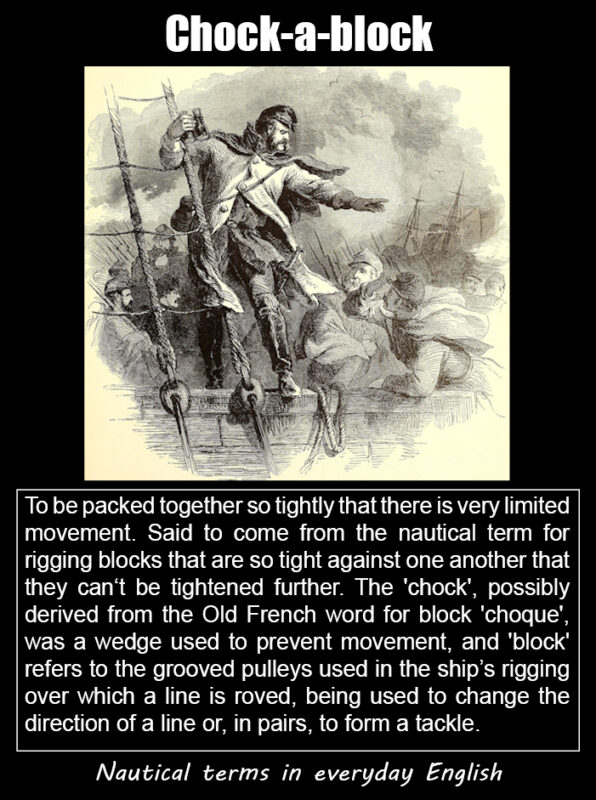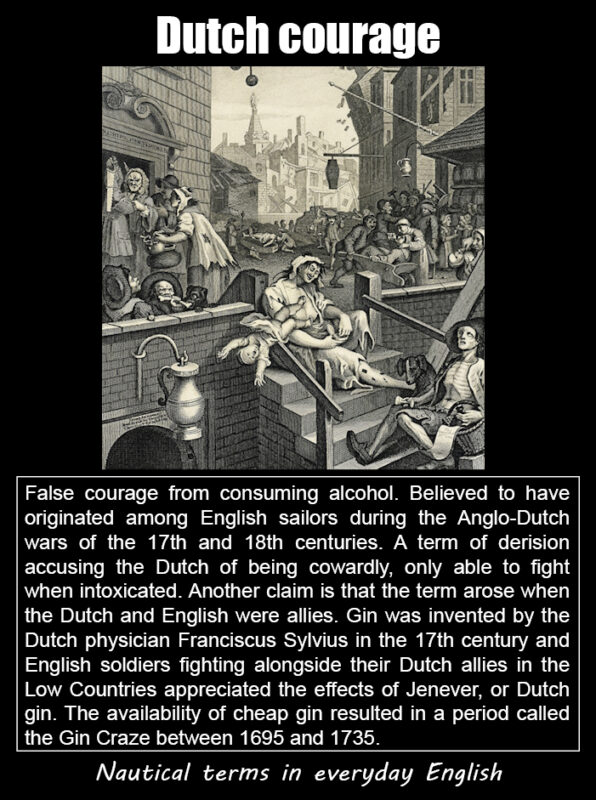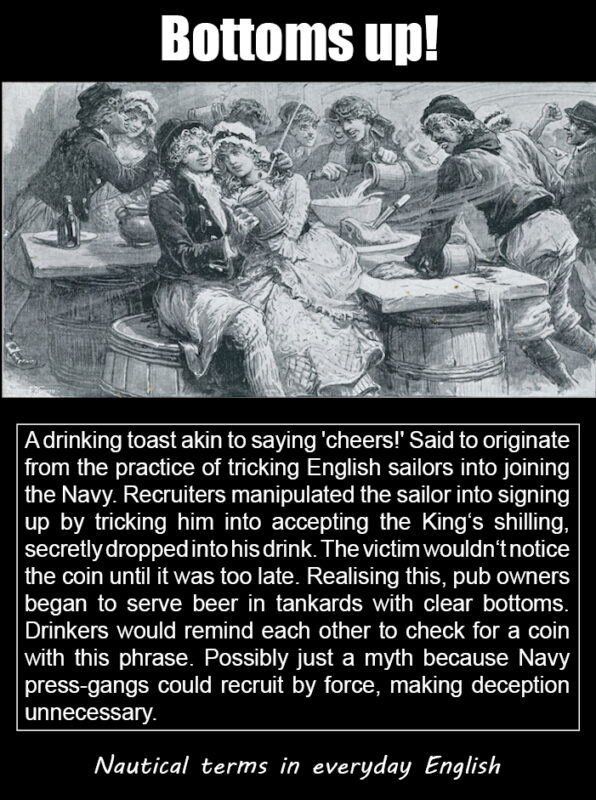
To be packed together so tightly that there is very limited movement. This phrase is thought to originate from the use of the block and tackle system on a sailing ship, referring to when rigging blocks are so tight against one another that they can’t be tightened any further. The word ‘chock’, possibly derived from the Old French word for block – ‘choque’, was a wedge or block of wood used to prevent movement, and ‘block’ refers to the pulleys used in the ship’s rigging, that have one or more grooves over which a line is roved, being used to change the direction of a line or, in pairs, to form a tackle. When a ship’s rigging was pulled as tight as possible and there was no more free rope, the blocks would be tightly compacted and said to be ‘chock-a-block.’




